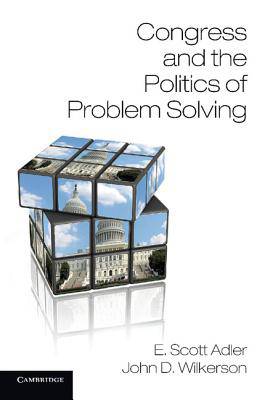
- Afhalen na 1 uur in een winkel met voorraad
- Gratis thuislevering in België vanaf € 30
- Ruim aanbod met 7 miljoen producten
- Afhalen na 1 uur in een winkel met voorraad
- Gratis thuislevering in België vanaf € 30
- Ruim aanbod met 7 miljoen producten
Zoeken
€ 50,45
+ 100 punten
Uitvoering
Omschrijving
Congress and the Politics of Problem Solving shows how a simple premise - voters are willing to hold lawmakers accountable for their collective problem-solving abilities - can produce novel insights into legislative organization, behavior, and output. How do issues end up on the agenda? Why do lawmakers routinely invest in program oversight and broad policy development? What considerations drive legislative policy change? Knowing that their prospects for reelection are partly dependent on their collective problem-solving abilities, lawmakers support structures that enhance the legislature's capacity to address problems in society and encourage members to contribute to nonparticularistic policy-making activities. The resulting insights are novel and substantial: Congress' collective performance affects the reelection prospects of incumbents of both parties; the legislative issue agenda can often be predicted years in advance; nearly all important successful legislation originates in committee; most laws pass with bipartisan support; and electorally induced shifts in preferences or partisan control are not robust predictors of policy change. The electoral imperative to address problems in society provides a compelling explanation for these important and provocative findings.
Specificaties
Betrokkenen
- Auteur(s):
- Uitgeverij:
Inhoud
- Aantal bladzijden:
- 262
- Taal:
- Engels
Eigenschappen
- Productcode (EAN):
- 9781107670310
- Verschijningsdatum:
- 14/01/2013
- Uitvoering:
- Paperback
- Formaat:
- Trade paperback (VS)
- Afmetingen:
- 152 mm x 226 mm
- Gewicht:
- 358 g

Alleen bij Standaard Boekhandel
+ 100 punten op je klantenkaart van Standaard Boekhandel
Beoordelingen
We publiceren alleen reviews die voldoen aan de voorwaarden voor reviews. Bekijk onze voorwaarden voor reviews.







